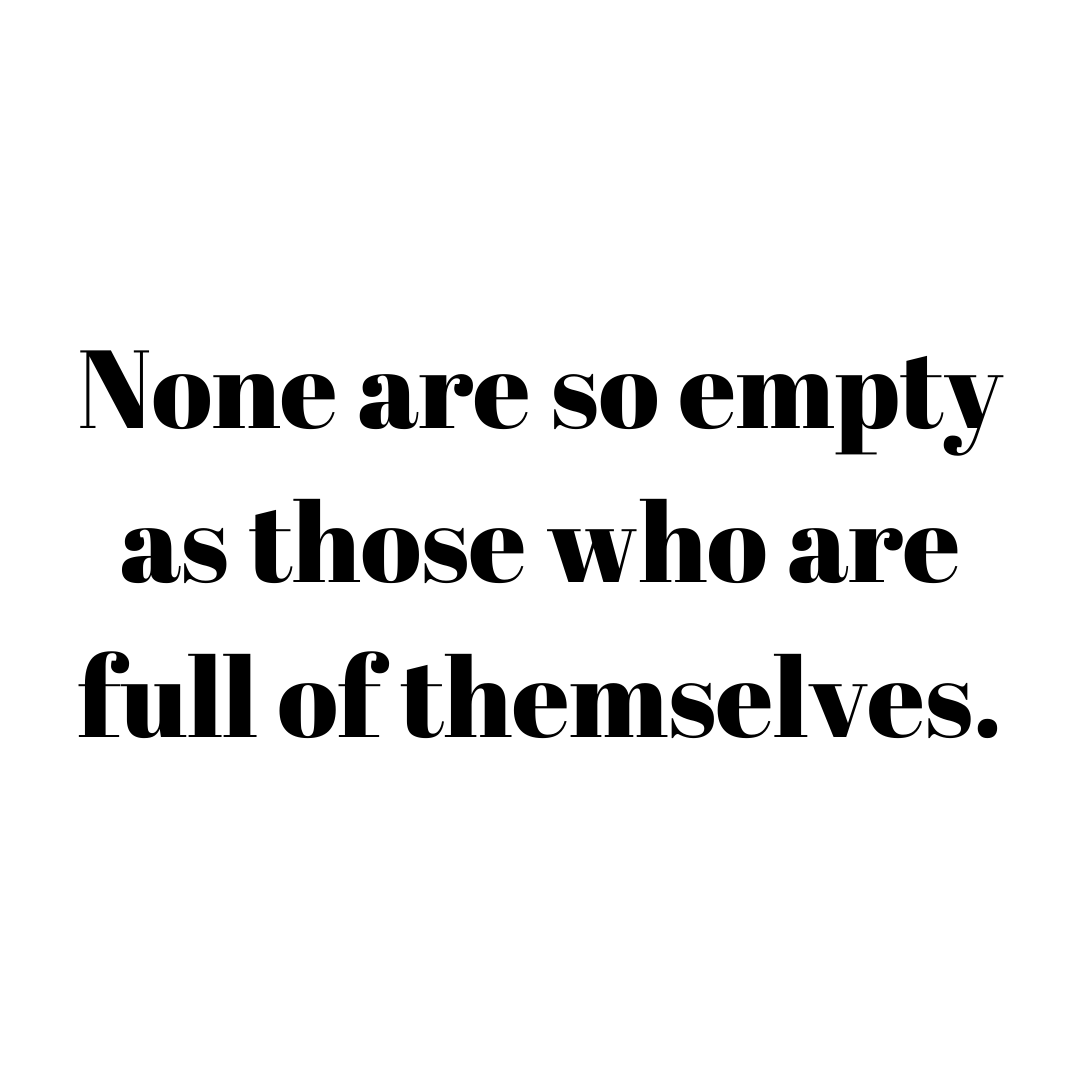Have you met anyone who only talks about themselves and constantly puts others down? The quote, “None are so empty as those who are full of themselves,” means that being too confident in yourself, or “full of yourself”, can lead you to live a rather empty and unfulfilling life.
In this post, we will explore the problems of both overconfidence and low self-confidence and address ways you can balance the two.
What Does it Mean to Be “Full of Yourself”?
If someone says that you are “full of yourself”, they mean that you are self-centered and excessively proud of yourself. This phrase means that you value yourself more than you value other people, and you tend to be boastful. Being full of yourself could also be considered synonymous with overconfidence.
The Downside of Overconfidence
While having confidence in yourself is good, being too confident in yourself can cause some problems in your life.
Poor Decision Making
When you are overconfident in yourself, you tend to make decisions without thoroughly thinking them through. This can lead to poor decision making because you may neglect to consider the consequences your decisions can have and possible better alternatives.
Difficulty Forming Relationships
Another downside of overconfidence is that people tend to avoid people that think too highly of themselves. Being overconfident can lead to arrogance and considering other people as less important than yourself. In this way, overconfidence can negatively affect your current relationships and lead to difficulties in forming new relationships.
Taking on Too Much
Overconfidence can also lead you to take on too many obligations because you think you can get more done than you are actually capable of. This can lead to missed deadlines and poor performance, along with excess stress from being stretched too thin.
The Downside of Lacking Confidence
On the other hand, having low self-confidence is equally as bad. Those with a lack of confidence can expect the following problems:
Accepting Less Than You Deserve
When you don’t value yourself, you tend to accept less than you deserve in life. For example, you might stay in a dead-end job because you don’t think you can get a better job, or you might stay in a negative relationship because you feel like no one else will date you.
Underestimating Your Abilities
In addition, you may underestimate your talents, strengths, and abilities, which can prevent you from challenging yourself. When you don’t challenge yourself, you never grow and develop your skills.
Being Taken Advantage Of
Another consequence of low self-confidence is that people are more likely to take advantage of you. People can tell when someone doesn’t believe in themselves, and they use that as a reason to treat them like they aren’t as good as other people.
Balancing the Two
Both overconfidence and lacking confidence are problematic, so how can you meet in the middle of the spectrum? Here are three ways you can keep your confidence in check.
Listen to Feedback, but Take It with A Grain of Salt
Listening to what your friends, coworkers, and family have to say lets you know how you can improve yourself and lets you know what you are doing well. However, you shouldn’t let negative feedback damage your confidence too much. View it as a learning opportunity.
Understand Your Limits, but Recognize Your Strengths
Everyone has limits and acknowledging those limits can keep you out of trouble. On the other hand, everyone has strengths, and acknowledging those strengths can allow you to use them better your life and work performance. You need both.
Consider the Consequences, but Don’t Let Them Stop You from Trying
Decisions always have consequences. You should always be aware of those consequences prior to making a decision, but you shouldn’t let the consequence keep you from making a decision in the first place. Use what you know about the consequences to make an informed decision.




